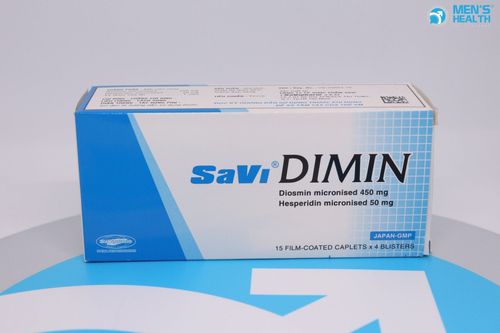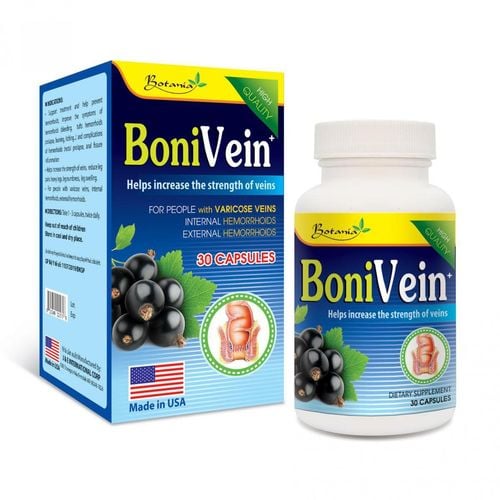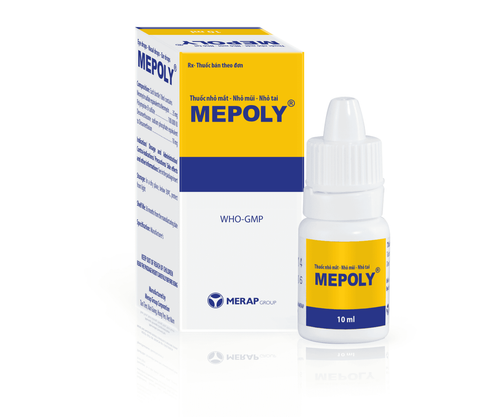This is an automatically translated article.
Alphalysosine is mainly used to treat health problems such as sinusitis, breast enlargement, internal hemorrhoids, external hemorrhoids,... The effectiveness of Alphalysosine will depend on the response status. , health as well as the patient's adherence to medication.1. What is Alphalysosine?
Alphalysosine belongs to the group of anti-inflammatory, analgesic and antipyretic drugs. The drug is used mainly for the treatment of inflammatory conditions after trauma/surgery, sinusitis, surgical hemorrhoids, otolaryngology, breast enlargement, periodontitis, epididymitis and cystitis.Alphalysosine is prepared in the form of film-coated tablets, packing box of 20 blisters x 10 tablets. In each alphalysosine tablet, the main active ingredient is alphachymotrypsine with a content of 4.2mg.
2. What does Alphalysosine do?
2.1 What disease does Alphalysosine treat? Alphalysosine is commonly used to treat the following conditions:
External hemorrhoids, internal hemorrhoids or anal prolapse. Inflammation after an injury or surgery. Treats problems such as nasal polyps, sinusitis, pharyngitis and otitis media. Using alphalysosine in combination with antibiotics helps treat infections or expectoration related to lung disease (bronchial asthma, bronchitis, tuberculosis). Treatment of symptoms of cataracts or eye bleeding. In case of breast enlargement, tearing or the need for perineal stitches. Treatment of urinary tract diseases such as epididymitis, vaginitis, cystitis. Fix some dental problems such as tooth abscess, gingivitis, jaw inflammation or root inflammation. 2.2 How is Alphalysosine used? Alphalysosine is made in the form of tablets, so patients need to take it by mouth as directed by a specialist. In addition, before using Alphalysosine, patients also need to carefully read the instructions written on the manufacturer's drug packaging to ensure high treatment efficiency and prevent risks related to the drug.
Depending on each patient, the doctor will prescribe a specific alphalysosine dose, including:
Adults: Take 1-2 tablets, about 2-3 times a day. Children: Take alphalysosine as directed by your pediatrician. Patients should use Alphalysosine at the correct dose, avoid using it in smaller quantities or take the drug longer than prescribed. You can take it before or after a meal, but avoid breaking or crushing the medicine when using it.
2.3 What to do when taking an overdose or forgetting a dose of Alphalysosine? In case of taking an overdose of Alphalysosine In case of taking an overdose of Alphalysosine and having symptoms of poisoning or having manifestations such as rash, urticaria, itching, difficulty breathing, chest pain, dizziness, , headache, ... the patient needs to quickly contact the 115 medical emergency center or go to the nearest medical facility for support. Besides, the patient should also record and get pregnant a statistical list of medicines that he has used, including herbal pills and vitamins.
For the case of forgetting to take a dose of Alphalysosine If the patient has missed a dose of Alphalysosine, take it again as soon as possible, avoiding too close to the time for the next dose. In addition, you should avoid making up twice the dose at the same time than prescribed because this can potentially lead to an overdose.
3. Some side effects of the drug Alphalysosine
During treatment with Alphalysosine, patients may experience some unwanted side effects, including:
Dizziness, drowsiness or dizziness. Severe liver/kidney dysfunction. Causes discomfort, diarrhea, abdominal pain, nausea or vomiting. Allergic reactions, urticaria , rash and itchy rashes on the skin. In addition to these common side effects, there may be other rare side effects not listed and may occur in some patients while taking Alphalysosine. If you notice that your body appears abnormal signs right after drinking or symptoms such as dizziness, dizziness, irritability, etc. are getting worse, the patient should immediately notify the doctor for treatment. properly and in a timely manner.
4. Some things to keep in mind when using Alphalysosine
4.1 What precautions should be taken while taking Alphalysosine? Before using the drug, the patient should tell the doctor if:
Are allergic to the active ingredient or to any other substance in the drug. Are taking anticoagulants or prescription or over-the-counter medicines, health foods or herbs. Experiencing or currently having medical conditions such as severe kidney / liver dysfunction, blood clotting disorder . Women who are pregnant should only use the drug when absolutely necessary. Ideally, patients should talk to their doctor about the benefits and risks of alphalysosine treatment. There is no specific information on whether alphalysosine passes into breast milk, so nursing mothers should consult with their doctor before deciding to use it. People driving or operating machinery should be careful when using alphalysosine because it can affect the nervous system. 4.2 Alphalysosine Drug Interactions Alphalysosine interactions with other drugs can lead to serious side effects or decrease the effectiveness of the drug. According to research, alphalysosine when taken with anticoagulants can increase the blood-thinning effects of this drug. To prevent drug interactions, patients should tell their doctor about any medications, foods they are taking, or any other medical conditions.
4.3 Alphalysosine storage conditions You should store Alphalysosine at room temperature, away from moisture or light. Do not store the medicine in the freezer or bathroom as this may change the mechanism of action of the active ingredient in the medicine, thereby reducing the therapeutic effect. Keep alphalysosine out of the reach of children, and avoid throwing it down a drain or toilet unless directed to do so by your doctor.
Please dial HOTLINE for more information or register for an appointment HERE. Download MyVinmec app to make appointments faster and to manage your bookings easily.













